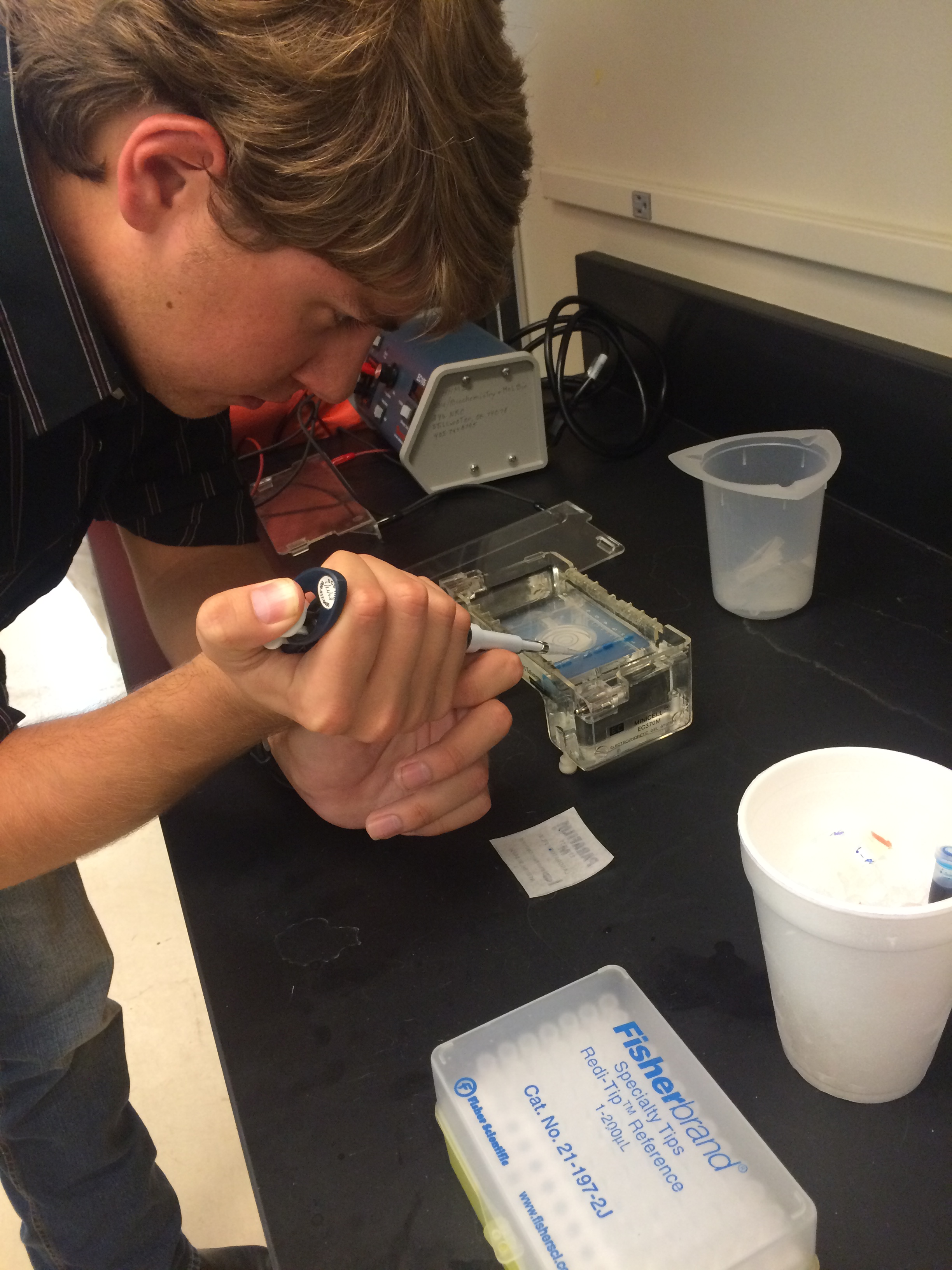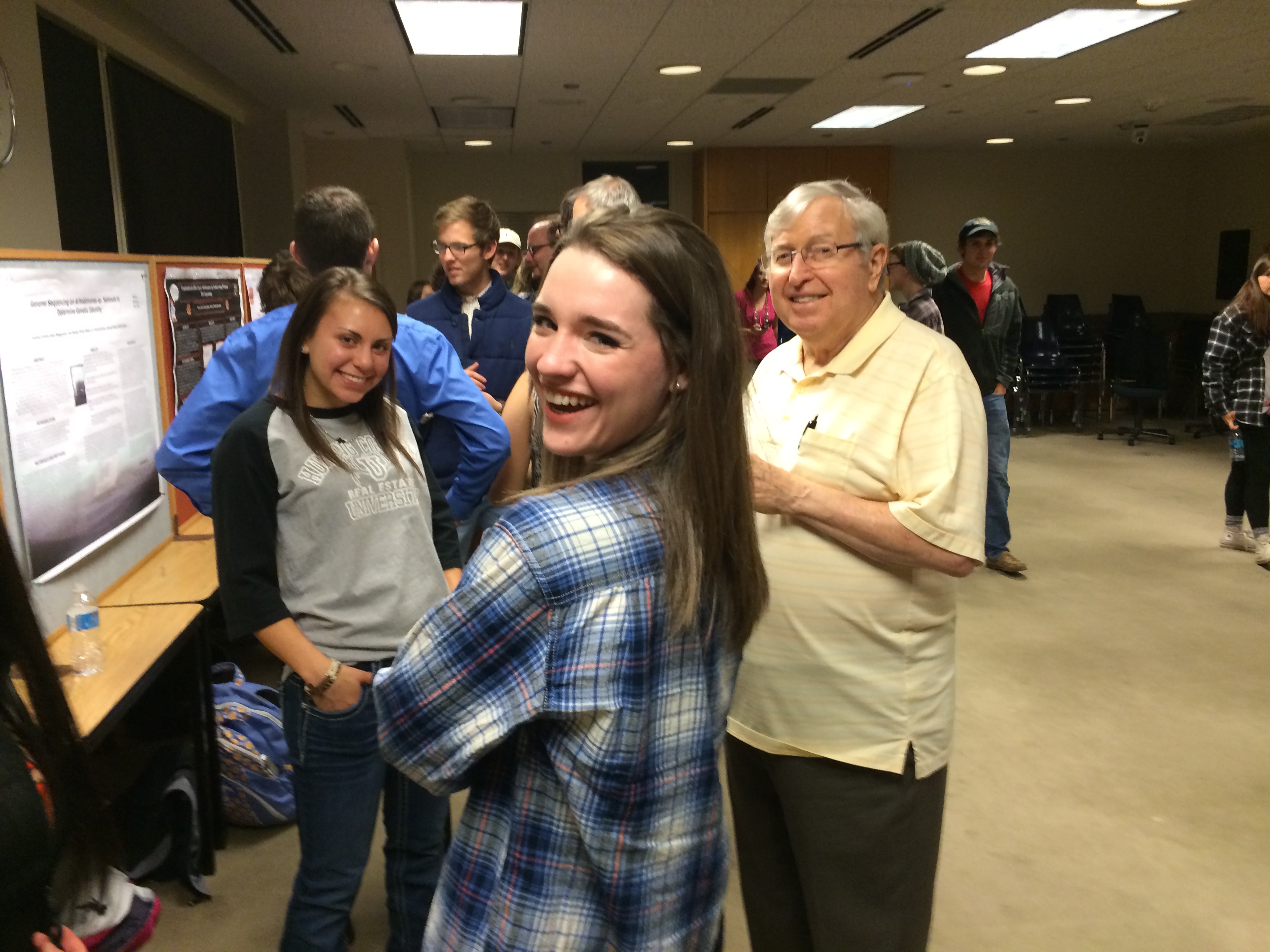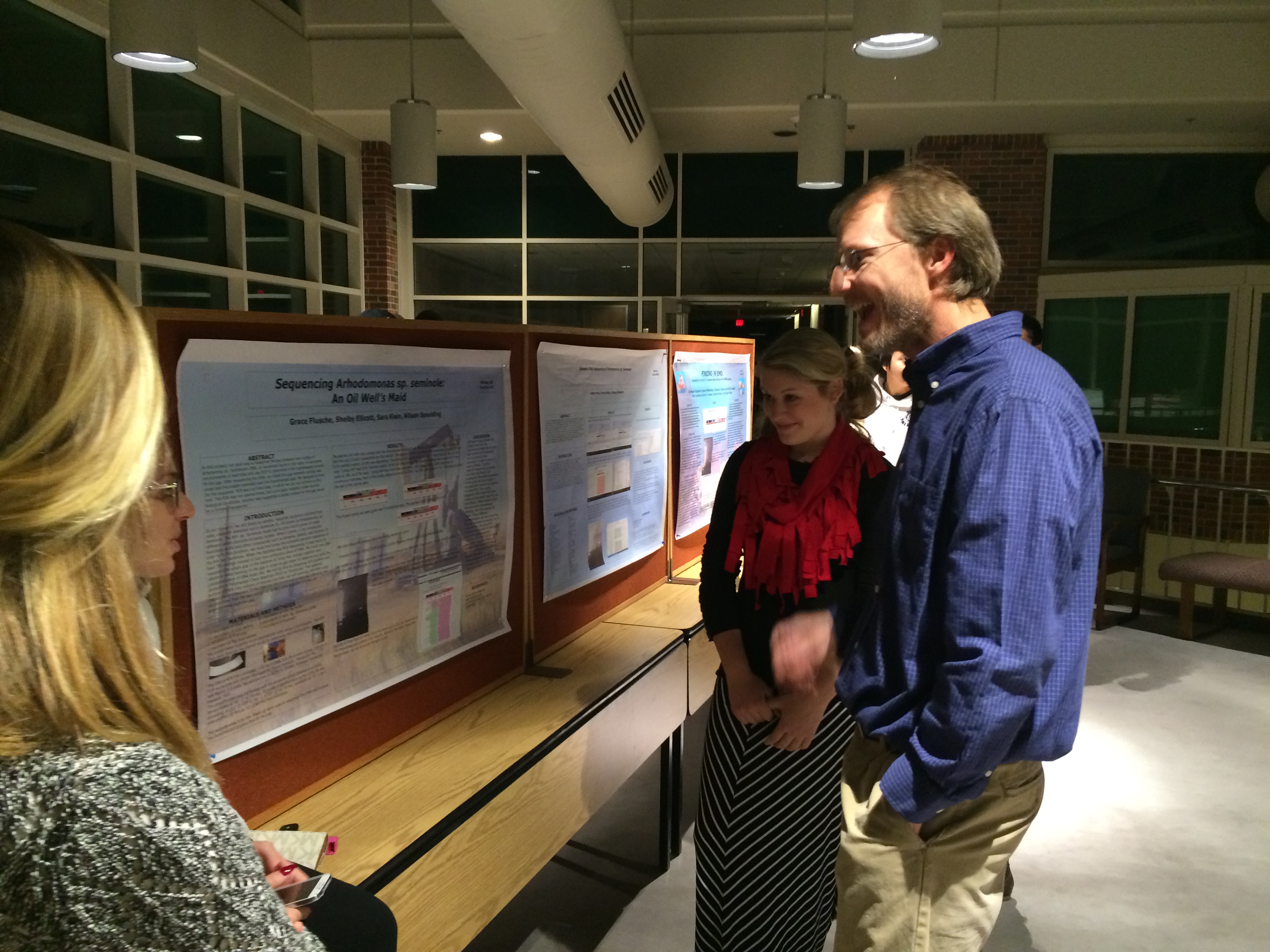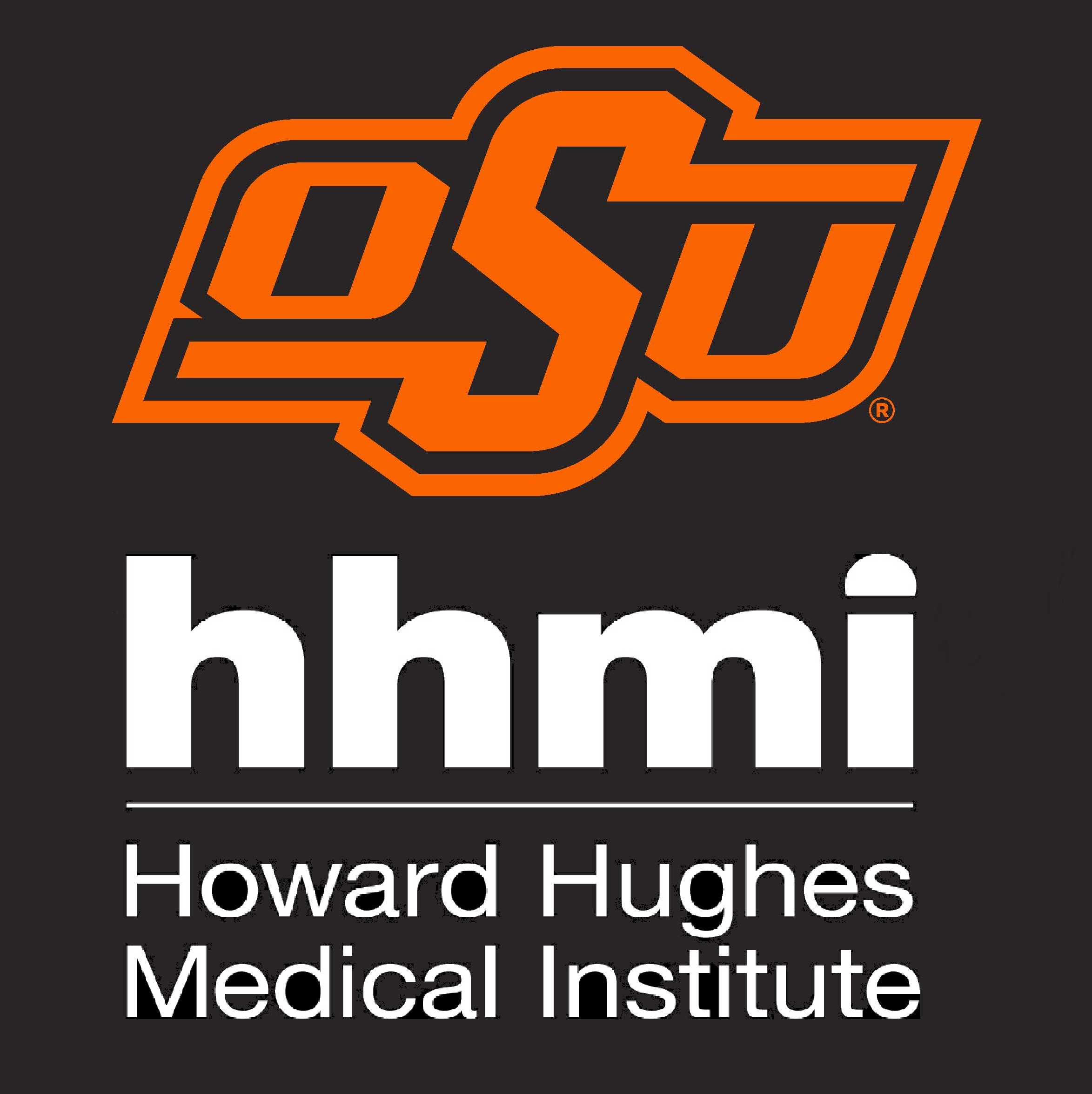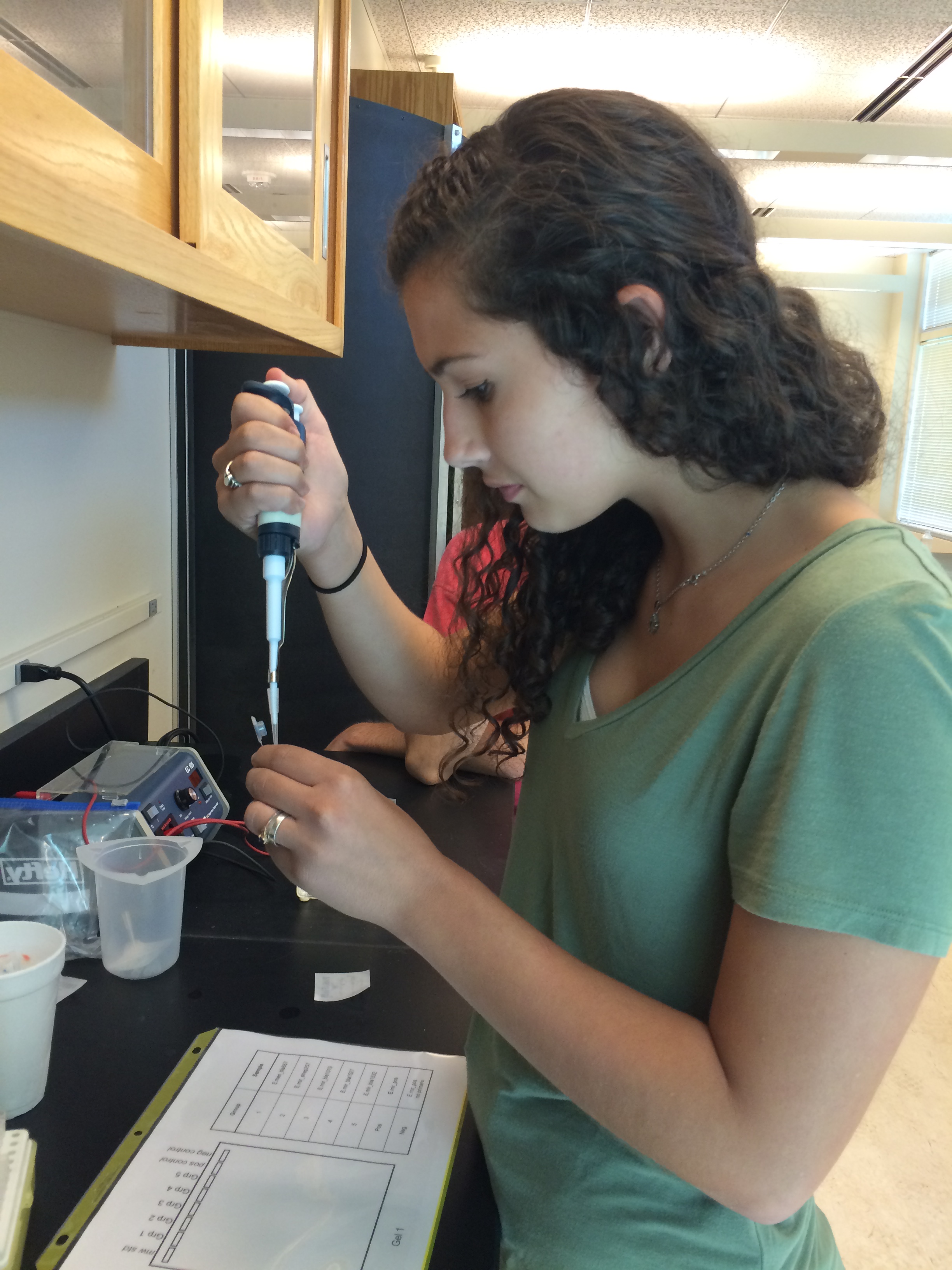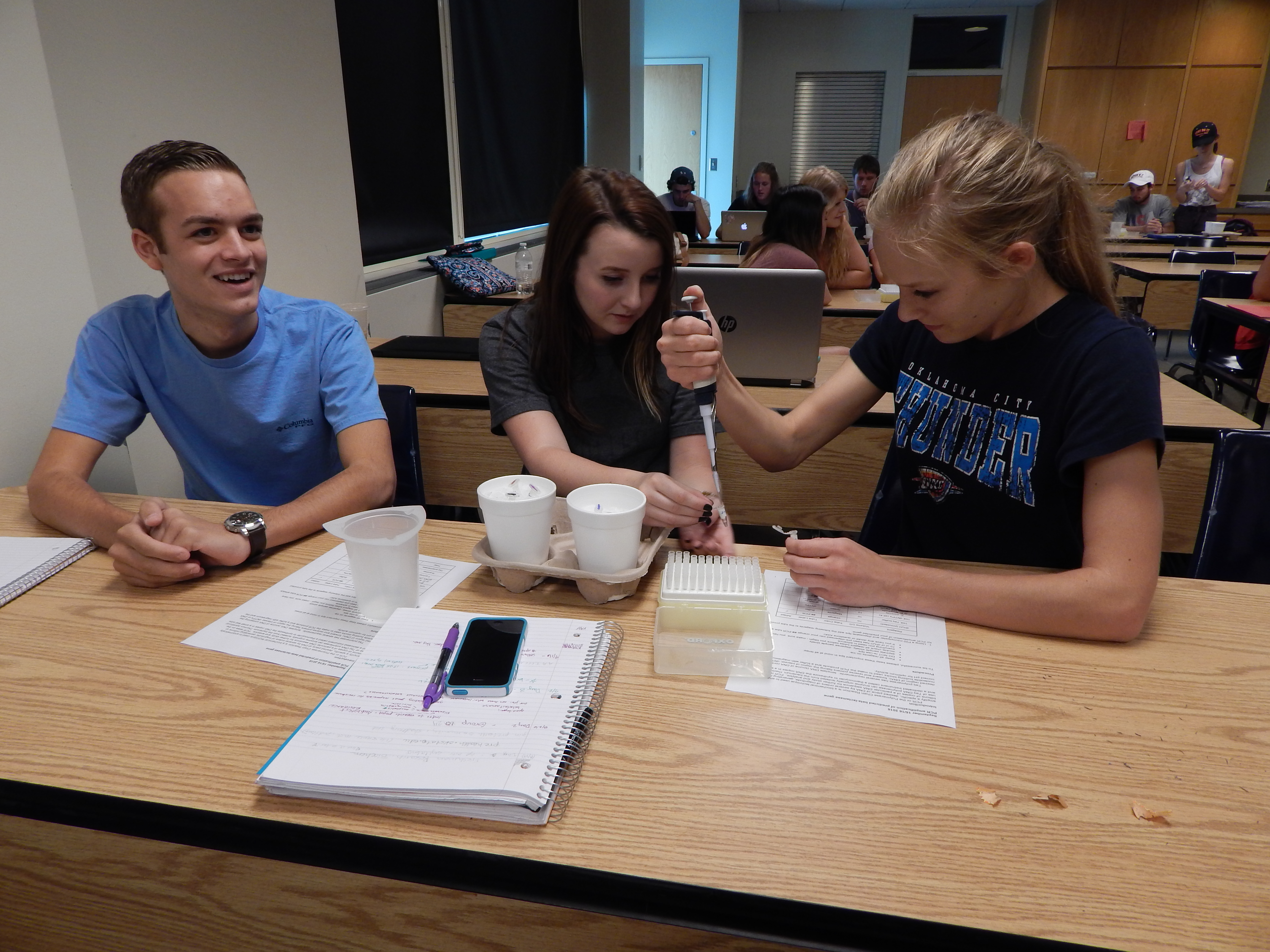Students engage in cutting-edge scientific exploration through a guided research experience while learning fundamental concepts of Biochemistry and Molecular Biology. Students begin with an introduction to the scientific method and learn how to use this method to solve a problem or answer a question. With a series of activities, discussions and lectures, students learn how to begin asking their own questions and then embark on a quest to uncover secrets hidden within a multi-drug resistant opportunistic pathogenic bacterial genome. Students will become familiar with scientific literature, learn to construct a hypothesis, design their own experiments and analysis, make and record observations, analyze their findings and draw conclusions. One year the students determined how to connect segments of bacterial chromosomal sequences generated by next generation sequencing technology in order complete a circular bacterial genome. The organism investigated in this study came from an Oklahoma injection well site, and was able to digest a number of different hydrocarbons found in oil. The next year, students were taught how to clone antibiotic resistance genes (penicillinases) from an emerging bacterial pathogen that has recently caused an outbreak in the Midwest that has led to significant mortalities. This organism Elizabethkingia is very unique from other penicillin-resistant pathogens, in that its chromosome carries multiple copies of penicillinase gene as opposed to one copy of the gene normally required for full penicillin resistance in other pathogens. All studies culminate in a poster symposium where the students present their findings and this even is attended by faculty, graduate students, undergraduate students and many others from the Department of Biochemistry and Molecular Biology.
